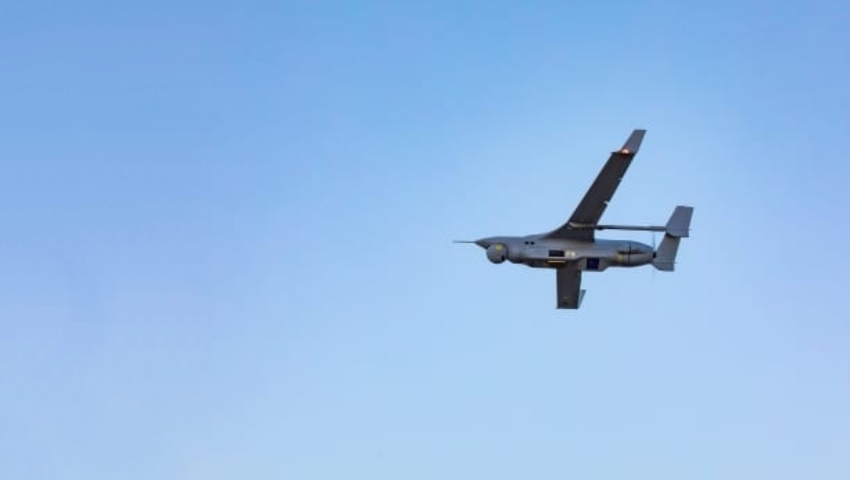The Brisbane-based manufacturer has been selected to deliver a tranche of UAS platforms to the Australian Army as part of a $650 million investment in local capability.
The Commonwealth government has contracted wholly-owned Boeing subsidiary Insitu Pacific to supply 24 ‘Integrator’ tactical uncrewed aerial systems (UAS) to the Australian Army under the LAND 129 Phase 3 project.
The acquisition and initial contract period with Insitu Pacific are estimated to be worth approximately $307 million, and forms part of a new $650 million Commonwealth government investment in Defence capability.
The contract also includes the delivery of associated ground systems and prime systems integrator services.
The platforms are set to be manufactured from the company’s facility in Brisbane, with delivery expected in 2023 and 2024.
The Integrator platforms are designed to deliver enhanced intelligence, reconnaissance and surveillance (ISR) capabilities, while also supporting the acquisition of targets for weapons systems across the Australian Defence Force.
Andrew Duggan, managing director of Insitu Pacific, welcomed the opportunity to support the enhancement of Army capability.
“The introduction of Integrator’s surveillance and reconnaissance capabilities will be a significant force multiplier for the complex challenges Army faces today and in the future," he said.
Minister for Defence Peter Dutton said the deal would also bolster the nation’s sovereign industry capability, with 80 per cent of its $650 million investment to be spent locally.
Australian companies are expected to support the manufacture, maintenance and operation of the platforms over the life of the program.
“This project will enhance the Australian Army’s capabilities by harnessing the innovation and cutting-edge technologies being developed right here in Australia,” he added.
“Insitu Pacific Pty Ltd will manufacture the new platform at their facility in Brisbane and integrate components provided by suppliers from around Queensland and across Australia.”
The Commonwealth government has also committed a further $56 million for upgrades to facilities at Gallipoli Barracks in Enoggera, Queensland to support project delivery.
The upgrades are also tipped to support a range of other key capabilities, including the Army’s Bushmaster fleet, and associated sustainment over the next decade.
Member for Brisbane, Trevor Evans, noted the benefits of the new investment for the local community.
“This contract is supporting 130 new and existing jobs here in Brisbane and across Australia,” Evans said.
“People may not have always associated Brisbane with defence industry in the past, but projects like this demonstrate the real opportunities advanced manufacturing can offer now and into the future.”
This is the latest of three notable investments in Defence capability announced this week.
On Thursday (10 March), the government announced $38 billion would be invested in expanding the Australian Defence Force by 30 per cent, increasing the number of personnel by 18,500 to an estimated 80,000 by 2040.
Under the plan, the ADF would command 6,000 more troops than the "critical minimum" recommended by Defence to provide "redundancy and resilience" to cover casualties in the event of an armed conflict.
This is set to represent the largest ADF force since the Vietnam War.
The plan will be rolled out across all warfighting domains and all states and territories.
The workforce growth will particularly focus on capabilities associated with the trilateral security partnership between Australia, United Kingdom and United States (AUKUS), as well as air, sea, land, space and cyber.
The announcement forms part of the 2020 Force Structure Plan (FSP), and has been assessed since the National Security Committee of cabinet approved the policy late last year.
Earlier in the week, Prime Minister Scott Morrison announced plans to develop a new naval base on Australia's east coast to support the operation of the Royal Australian Navy’s future nuclear-powered submarines promised under the AUKUS agreement.
The new base is expected to include specialised wharfs; maintenance facilities; administrative and logistics support; personal amenities; and suitable accommodation for submarine crews and support staff, including visitors.
Brisbane, Newcastle and Port Kembla have been shortlisted among 19 locations reviewed by the government.
The Commonwealth government is reportedly favouring development in Wollongong’s Port Kembla, as outlined in a submission to the cabinet's National Security Committee.
Defence has commenced consultations with the NSW and Queensland governments, as well as relevant local authorities.
[Related: PM unveils $38bn ADF enhancement plan]









